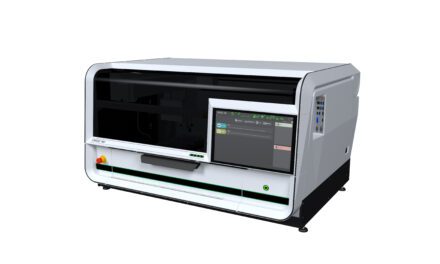SYNERGEN Health has embraced AI to help its clinical laboratory customers become more viable and profitable.
By Chris Wolski
Summary:
Clinical laboratories face growing financial challenges, including reimbursement issues, but AI-driven automation can help streamline processes, reduce denials, and improve profitability.
Key Takeaways:
- Reimbursement Challenges: Labs struggle with claim denials, rising costs, and declining Medicare reimbursements, impacting test offerings and financial stability.
- AI as a Solution: AI can enhance order entry, automate revenue cycle management, and reduce manual errors, leading to cleaner claims and improved reimbursement.
- Strategic Investment: Labs should analyze denial trends and inefficiencies to prioritize AI adoption, ensuring better resource allocation and long-term viability.
In addition to increased workloads, rising costs, and personnel shortages, reimbursement is a growing challenge for clinical laboratories.
This is where emerging technology, such as artificial intelligence (AI) comes in. These tools promise to help laboratories cut costs while improving reimbursement. In a wide-ranging interview with Teri Schmidt, MBA, CPC, vice president of Consulting & Business Development at SYNERGEN Health, she outlines why cutting-edge tests are denied, how to improve reimbursement, why AI is a “must” for order entry, and how SYNERGEN Health can help improve laboratory profitability.
Answers have been edited for length and clarity.
CLP: How serious is the issue of labs not getting adequately reimbursed?

Teri Schmidt: Approximately $17B tests are ordered annually. If you consider 10%-30% of lab claims are denied or rejected upon first-time submission, this represents an impact on not only reimbursement but also increased demand for required resources. Add to this CMS announcement to reduce 15% lab reimbursements in the Medicare Clinical Lab Fee Schedule in 2025, and you have an unfavorable business scenario. With healthcare costs rising, and reimbursement rates declining, pressure is placed upon laboratories to find alternative approaches to reduce costs while adopting emerging technology to assist with the increased workload demands. Those tests that have a significant impact on reimbursement may determine tests offered and may reduce the adoption of new tests, increase send-outs, and potentially even lead to the sale of laboratories or layoffs.
CLP: What are the biggest factors causing denials for molecular and other cutting-edge tests?
Schmidt: The complexities of new tests force labs to use unspecified CPT codes. The AMA, CMS, and commercial payers can’t keep up with technology and testing advances. If there isn’t a code that accurately describes the test, it requires an unspecified CPT code, which requires documentation and delays reimbursement. In addition to this, the claim reviewer may have limited testing knowledge and, therefore, may impact reimbursement.
The increased burden of requiring prior authorizations is also forcing staff to seek automation tools to assist with the increased staffing and resource demands.
CLP: What are some of the ways that labs can be properly reimbursed and reduce the number of denials?
Schmidt: Familiarize yourself with payor reimbursement rules and monitor reimbursement trends and denials. This is critical to determining where the denials have the largest impact and what the appropriate fix is. A majority of issues stem from the front end. Invest in technology to verify eligibility to produce cleaner claims and reduce the denials on the backend.
CLP: You advocate embracing AI for order entry and billing, calling it a “must”—how will that help labs? What kind of investments do they need to make?
Schmidt: The revenue cycle cannot be managed without technology in the laboratory space. The volume of claims and the required number of touches to get paid make it impossible for a team to handle manually.
If we look at the order entry process—there are many areas that can create errors resulting in an increased workload. Most labs still have a large percentage of paper requisitions which can cause delays in capturing charges and submitting clean claims. Using AI, we can automate many manual tasks across RCM with improved accuracy and efficiency.
At a minimum, laboratories should look at the entire end-to-end revenue cycle process and determine where their staff is spending the most time and, secondly, where most of the denials and rejections occur. Start here to determine where to invest initially. If you can streamline the front end, get the insurance information correct and increase your clean claim submissions, this will have a large impact on most laboratories.
CLP: Can you describe how SYNERGEN can help labs improve their reimbursements and become more viable and profitable?
Schmidt: SYNERGEN is powered with end-to-end technology from the point when a specimen is ordered to final payment: demographics and insurance verification, payment estimations, automating requisitions, enhanced compliant billing and charge capture, denial tracking and appeal resolution, client billing solutions, and an advanced analytic platform. Our digital revenue cycle solution and services transform lab revenue cycle management through improved efficiency, integrated connectivity, and visibility into performance, which is critical for lab profitability.
CLP: Since some tests are denied more frequently than others, how is this affecting the menu of services some labs are offering and the ability of patients to be diagnosed in a timely manner?
Schmidt: This is a real issue, which is why accuracy and compliant billing are so important. According to the CDC, 40,000 to 80,000 deaths occur annually from preventable diagnostic errors. For example, a strep throat diagnosis may be straightforward; however, cancer treatment may rely on more accurate diagnoses.
CLP: With staffing shortages across the board, how do you see AI playing a role in the next 5 to 10 years?
Schmidt: Technology will continue to play an important role in a laboratory environment. The revenue cycle is primed for automation, and the use of AI allows for increased efficiency and accuracy. As the trend continues for increased denials for inheritable genetic disorders—as much as 70% currently for prior authorizations—staff will not be able to keep up with the volume. It also creates the risk for staff burnout with molecular claim denials—low dollar/high volume tests. Predictive fixes using AI and machine learning will be essential to keep laboratories financially afloat.
Chris Wolski is chief editor of CLP.
Featured Image: Leowolfert | Dreamstime.com





